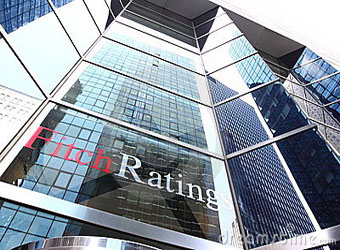Some Egyptian banks are still at risk of struggling to meet minimum regulatory capital requirements as a consequence of currency weakness after the Egyptian pound was floated earlier on November 3rd, given their high exposure to foreign-currency (FC) loans, Fitch Ratings said in its release on Tuesday.
“The currency devaluation will also weaken asset quality, with debt restructuring of loans for smaller corporates already taking place, but we expect only modest deterioration.” Fitch said.
In the event of capital shortfalls at public-sector banks, the ratings agency believes the Egyptian authorities would look to provide support, as they did last year when the Central Bank of Egypt (CBE) provided interest-free loans classified as subordinated debt to help recapitalise the country’s three public-sector banks. However, the government’s ability to support banks is severely constrained by its weak credit profile and financial flexibility. Fitch further said it expects private-sector banks would cut dividends to bolster capital if needed.
The capital weakness stems from the inflation of FC risk-weighted assets due to the depreciation of the pound in November 2016, with some banks reporting more than 50 percent loan growth in 2016, while capital is predominantly in local currency. Seeking subordinated debt may help banks meet the minimum regulatory capital adequacy requirement of 11.25 percent, but Fitch Core Capital (FCC) and Tier 1 capital ratios will continue to be under pressure as subordinated debt is not included as capital in these ratios. Capital remains vulnerable to the weakening of the pound as FC loans are significant, reaching 44 percent of the sector’s total loans at end-November 2016 just after the pound was floated.
Egyptian banks had reasonable asset quality before the pound was floated, with an average impaired loan ratio of 5.9 percent while impaired loans were 99 percent covered by reserves at end-September 2016. Falls in the value of a currency tend to lead to weaker asset quality for banks but Fitch expects limited deterioration. Most FC lending in Egypt is to borrowers with FC revenues, which acts as a natural hedge, and import-related trade finance loans (excluding certain strategic products) are backed by 100 percent cash cover in the same currency.
Further to the devaluation, the CBE has agreed with banks to restructure the FC debt of some smaller corporates (with turnover less than 500 million Egyptian pounds and debt not exceeding $5 million). The CBE will provide banks with $400 million-500 million to cover their open position and in return the firms will repay their debt in local currency at 12 percent interest rate. Egyptian banks have strong pre-impairment operating profits, which provides a buffer to absorb impairments.
Previously, Egyptian banks had insufficient FC liquidity to meet demand from corporate borrowers. Fitch believes the floating of the pound will increase the flow of foreign direct investments and help to ease the FC shortage in the Egyptian banking system. “However, the sector’s FC loans/deposits ratio is weak, in our opinion, given the operating environment, with a worsening trend in recent years.”
In contrast, banks have excess local-currency liquidity, which they are deploying in government bond auctions, attracted by the yields. Egyptian sovereign debt accounts for 30 percent -50 percent of banks’ balance sheets and is the main credit risk for banks. Any change in Egypt’s sovereign rating (B/Stable) would probably be reflected in Egyptian banks’ Issuer Default Ratings.
